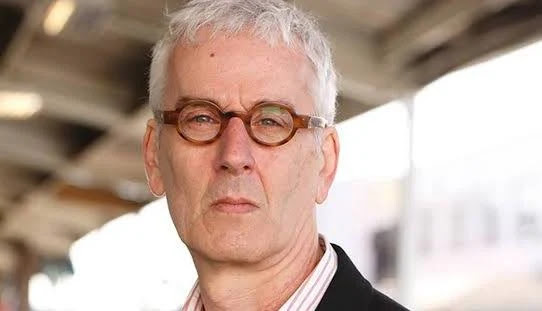Joshua Clover, a distinguished professor at the University of California, Davis, and a prominent scholar in critical theory, English, and comparative literature, has passed away. His unexpected death has left an immense void in both academic and intellectual circles, particularly within the Marxist academic community.
As a faculty member of the School of Materialist Research, Clover made a significant contribution to the world of critical theory and political economy, his name etched in the annals of the disciplines he loved and shaped throughout his career.
Joshua Clover was a man whose work was both deeply scholarly and profoundly practical. Over the years, he became widely recognized for his insightful contributions to Marxist theory, political economy, and their intersections with poetry and popular culture.
A prolific author, Clover penned seven books that examined the delicate and powerful connections between various forms of societal power and the cultural practices they shape. His writing was known for its incisive analysis and its ability to reach diverse audiences, from students in university classrooms to engaged activists in broader political movements.
Through his publications, he presented a vision of the world that was unflinching in its critique of capitalism and the power structures that perpetuate inequality and oppression.
As a professor, Clover was a dedicated and passionate educator, known for his rigorous yet accessible teaching style. His lectures were more than just instructional—they were discussions that invited students to think critically about the world around them, challenging them to engage deeply with theoretical ideas and to apply them to real-world contexts.
His classes were a space for intellectual growth and exploration, where students were encouraged to challenge conventional wisdom and to develop a critical consciousness about the structures that shape society.
Clover’s deep commitment to intellectual inquiry extended beyond the classroom. He was also the director of the Marxist Institute for Research at UC Davis, a position that allowed him to further explore and expand upon the Marxist ideas that shaped much of his academic work.
Under his direction, the institute became a hub for research and dialogue on issues of class, politics, culture, and the ways in which economic systems influence every facet of life. The impact of this work was not limited to the academic community; Clover’s research had broader social and political implications, contributing to ongoing debates about capitalism, labor, and social justice.
His intellectual contributions were informed by a profound sense of social responsibility. Clover did not see his academic work as a mere pursuit of knowledge for knowledge’s sake but as part of a larger project aimed at understanding and challenging the systems of power that shape everyday life.
His writing and research were always deeply rooted in a sense of urgency—an urgency to understand the world in order to change it. In this regard, he remained committed to Marxist principles throughout his career, and his work consistently sought to expose the contradictions and inequalities inherent in capitalist systems.
Beyond his work as a professor and researcher, Joshua Clover was a kind and generous colleague. He was known for his willingness to engage in thoughtful conversations with peers, often offering feedback, support, and encouragement. He was not just a teacher and mentor but also a friend, someone whose intellectual curiosity was matched only by his humanity. He had a way of making those around him feel heard and understood, and his friendship was cherished by many within the UC Davis community and beyond.
As we remember Joshua Clover, we are reminded not only of his academic brilliance but also of his deep commitment to the values of justice, equality, and social change. His death is a loss to the world of academia, but also to the broader struggle for a more equitable and just society. His legacy lives on through his writings, his teachings, and the many students, colleagues, and activists whose lives he touched.
Joshua Clover will be deeply missed by his friends, colleagues, students, and the many others who knew him and were influenced by his work. His passing marks the end of a brilliant career, but his contributions to the field of critical theory and Marxist research will continue to inspire and guide future generations of scholars. May his work not be forgotten, and may his memory continue to serve as a beacon for those who seek to challenge the status quo and build a more just and equitable world.



